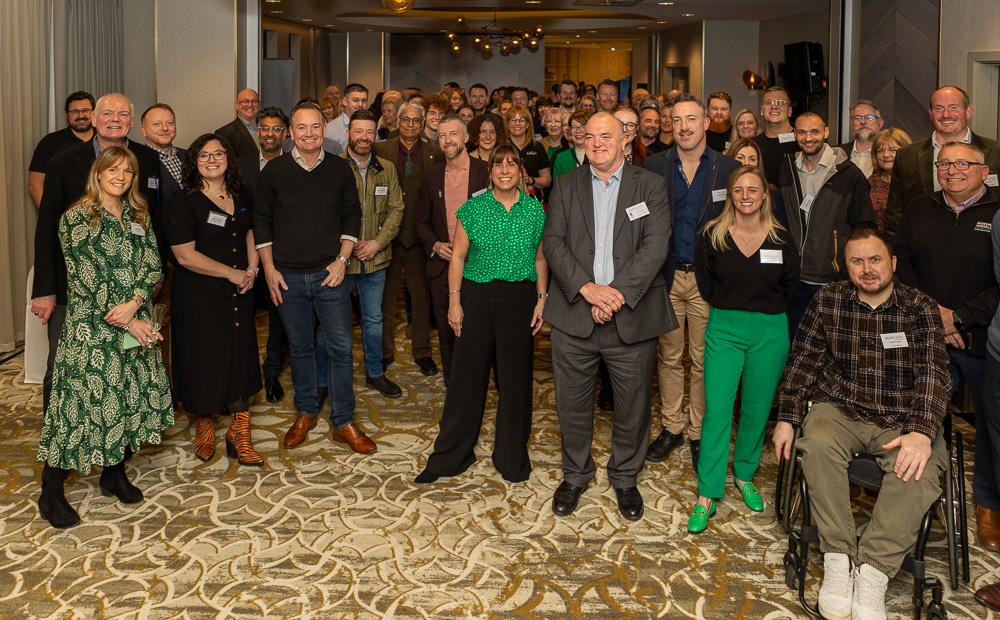
Spring Launch 2024
March 12, 2024 1:17 pmOur 2024 Spring Launch event took place on 7th March at the Novotel, it was great to have over 100 businesses and supporters in the room. We would like to say a huge thank you to our headline event sponsors – Multum Gin Parvo, C S Ellis Logistics, and sub headline sponsors The Grand Hotel and Light Up Creative. I’d also like to say a big thank you to our Business Club sponsors Janine Edwards Private Clients and Spirit Healthcare, whose monthly contributions enable us to organise events for our business community. Thank you also to Steven Havers Business Photography and Proverb Media for their services in kind.
For those who were unable to make the event, here is a summary of what Emma Hallam, our CEO and Founder had to say…
I was in London last week, spending 3 days with clinicians, families, major pharmaceutical players involved in Duchenne at the Duchenne UK Horizons Conference. It was incredibly inspiring to see how far we have come on this journey so far.
Alex, my son is doing extremely well for a young man living with Duchenne, almost 18 years old and still walking, driving a car which hasn’t been adapted and living independently, able to care for himself for most of his daily routines. Planning for university and embarking on his career.
Whilst others with Duchenne are unable to walk before they reach 10 years old, needing to use a power wheelchair and hoists to get around their home, relying on full-time carers to do the simplest of tasks for everyday living. Washing, getting dressed and needing to be carried from one place to another. Many families with a young man like Alex, are having to get up several times in the night, to simply turn over their sons. Imagine not being able to move in bed and feeling uncomfortable and having to press a buzzer to get your parents up in the middle of the night to move you?
Imagine being that parent, not ever getting a good night’s sleep and then having to turn up to work the next day. This is not just a bad night; this is every night. They can’t go away for a weekend break, as it’s hard asking grand-parents to take over this sort of care, often they wouldn’t have the strength to do so – even for a short time.
This is what makes it so hard when your child is first diagnosed, how will they fare? Worrying about the worst-case scenario, despite perhaps not needing to worry so much, this was certainly the case when Alex was diagnosed, with this condition, parents are dealing with the unknown.
It can take more than 12 months from applying for a power wheelchair to your child receiving it. Your home needs to be adapted. So there definitely is not one size fits all. It’s important to put this into perspective when we talk about how well Alex is doing.
Clinical Trials
What makes this disease so complex is when we’re looking at the outcomes of medical trials, each boy declines at different rates, so understanding how well a new drug performs brings it challenges. This is why we’ve invested in projects to investigate the best biomarkers to measure, such as the six-minute walk test, time to stand and time to climb 4 steps. This will ensure that every trial compares like for like data across placebo vs. the drug.
There are many considerations for families taking part in trials – length of travel to a trial site, frequency of visits, financial burden, their child’s willingness to take part, and the unknown side effects.
Often families are balancing working lives, with caring for their child and travelling (sometimes once a week) to centres many miles away. There are families flying over from Ireland to take part in weekly trials in the UK, having to take a day off per week and making decisions to work part-time or give up their jobs entirely. This has a huge financial burden on families, adding to the stress of everything going on.
However, we all recognise the importance of taking part in trials, each trial must be fully recruited to ensure we have sufficient data to get a new drug approved in the long run.
We currently have 25 companies in clinical development with 40+ compounds being developed in the UK. There are more trials now taking place for Duchenne than there has ever been. It’s incredibly encouraging to see many players in the Gene Therapy and Exon Skipping space. Each pharmaceutical company tweaking the formula the way they deliver the drugs to muscles inside the body. It’s important that we have ‘many horses in the race’, as this will give us the best outcomes and the highest possibilities of one of them coming to market to treat our boys.
Can you imagine how difficult it is for families to decide which ‘horse to back’, which trial to put their child on. Every single trial comes with unknown side-effects and potential benefits with no guarantees. It feels incredible risky and uncertain – families taking part in trials are so incredibly brave. Without them, there will be no new treatments emerging for our community.
We were thrilled to announce earlier this year, that the first drug has been given approval in the UK to help treat all boys living with Duchenne. This drug is called Vamorolone (a steroid alternative drug that has less side effects that traditional steroids). Steriods are routinely used in the treatment of Duchenne as they can reduce muscle inflammation and maintain muscle strength. This drug is currently being considered by NICE for approval, and a decision is due in May this year. We provided funding to this project in its early research stages.
Also, Givinostat, the new drug trial that Alex has been trialling for the past 5 years, is currently going through approval stages, although we do not know at this stage when that approval will be. This drug is proving to delay disease progression, it’s great that Alex has it, but we need this for the entire Duchenne population. A trial has just been announced to include the non-ambulant population (boys who are unable to walk), to see if this drug will have clinical benefit for them. This is a huge step, as previously trials have not been available for the non-ambulant population, which has always seemed so unfair.
We now know the best steroid regimes to follow, this was all very unclear when Alex was diagnosed. We had to choose between two different steroids and decide the frequency we should give these drugs to Alex, daily or intermittently. We now know that daily use brings the best outcomes, and thankfully the decision we took all those years ago.
Early-stage Research is vital! We need to build a pipeline of potential new treatments. Whilst we have a plethora of trials taking place in the UK, we must continue to support early-stage research, the ‘less sexy’ part of funding. Many funders are not keen to back early-stage research, because it is risky, with no certain outcome. Will it ever make it to clinic? This is where charities step in, charities like Alex’s Wish, to fund this important work. We’ve invested in many early-stage research projects, some haven’t worked out. However, we learn so much from what doesn’t work, nothing spent is ever a waste of money.
Even though we are now seeing new treatments emerging, like Givinostat and Vamorolone, are better drugs out there? One that will delay the disease for longer. One that will build more muscle strength. We cannot simply sit back, be complacent and hope for the best. It can take up to 10 years from pre-clinical trial to the end point. We must continually support new research.
New technologies – We will be continuing to invest in new technologies to help transform the lives of children and young adults affected by Duchenne. The Smart Suit, a lightweight wearable exoskeletal device to help assist boys when they lose their upper arm function giving them independence. Recently re-branded Elevex, this suit currently at prototype stage, won The Medical and Healthcare Award at The Engineer UK Awards last week.
The Dream Wheelchair, in the UK wheelchairs are not always fit for purpose, not giving what the child really needs. Out of date technology that doesn’t live up to the 21st Century. The Dream Wheelchair is currently at prototype stage, and we will continue supporting this fantastic project.
Collaborating with Duchenne UK on these pioneering projects, we are going where no one else has gone before, including the patient population in the design process ensuring it is fit for purpose. Not only functionality, but something boys and young men are proud to be seen in. Just as they are of their latest iPhone. We got a taster as to what is coming at the conference, and it’s looks great!! We are so proud to be supporting these initiatives.
Improving Care Standards across the UK – whilst I was in London last week, I was involved a series of workshops individually looking at part of the care system asking ourselves how we can improve them. What must we consider. Out of these workshops, led by Duchenne UK, we will have a series of easy-to-read booklets for families and clinicals giving them confidence on what care standards should be despite where you live in the UK. It’s amazing to see the progress in care standards. We recently invested in the Weight Management workstream, which will look to bring fabulous guides on how parents can manage their son’s weight despite being on long-term steroids. As we know this is such an important area in the Duchenne community, and I’m looking forward to helping shape this project this year.
We’ve always spoke about hope – where we hope new treatments will come. Now we can be more certain than that, we can now be optimistic. Optimistic in that we can see a clear pathway to new treatments being delivered to this generation of children. This is fantastic progress, and we are excited to continue this journey we are on.
Our plans for 2024
We’ve set ourselves an ambitious target. Last year we raised £340K, our most successful year. We were able to invest more than ever into promising treatments and projects to help those living with Duchenne. This year, we must go further, our target has been set to raise £380K.
It won’t be easy. We need your ongoing support more than ever before. Collaborating with Duchenne UK, we’re backing several horses in the race. The projects we will be supporting this year, include…
Our Heart Grant Call, which was launched on Valentines Day, we need to raise £80K to invest in new research looking specifically at how Duchenne affects boy’s hearts, and what we can do to fix the issues. When Alex was diagnosed 14 years ago, it wasn’t best practice to give ace inhibitors and beta-blockers until there was a decline in heart function.
Now, because of research you have helped us to fund, it is now best practice to give these drugs to boys from the age of 10 years old. Before they see any sign of heart disease, to preserve their heart for longer. But this won’t be enough to delay disease progression altogether. At the end of the day, it’s the heart that is the most important muscle in the body, without it our boys do not stand a chance of survival.
A new data platform – we know data is so important to every decision a clinician, family and pharmaceutical company needs. Bringing together data sets held in various places. This is a big project being led by Duchenne UK, and one that we will support where we can this year.
New technologies – As previously mentioned, continuing to support the improving care standards in the UK, and well as invest in early-stage research as and when opportunities arise.
We can only do what we do with continued support, let’s make 2024 a fantastic year for Duchenne.
It honestly means the world to us, to Duchenne UK and the entire Duchenne community. Not every family can do what we do, everyone’s voice cannot be heard, so we are here to do this for them. We care so much about everyone. We share our personal story about Alex to get the message out there and do everything in our power to make that difference.
Together, we will conquer Duchenne and cure this generation of children.
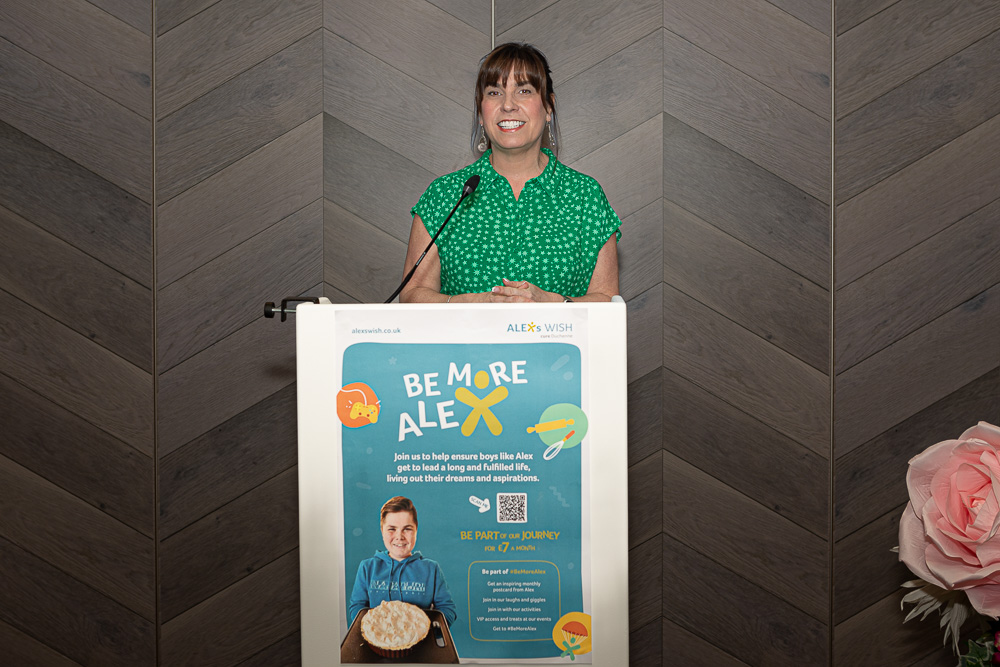
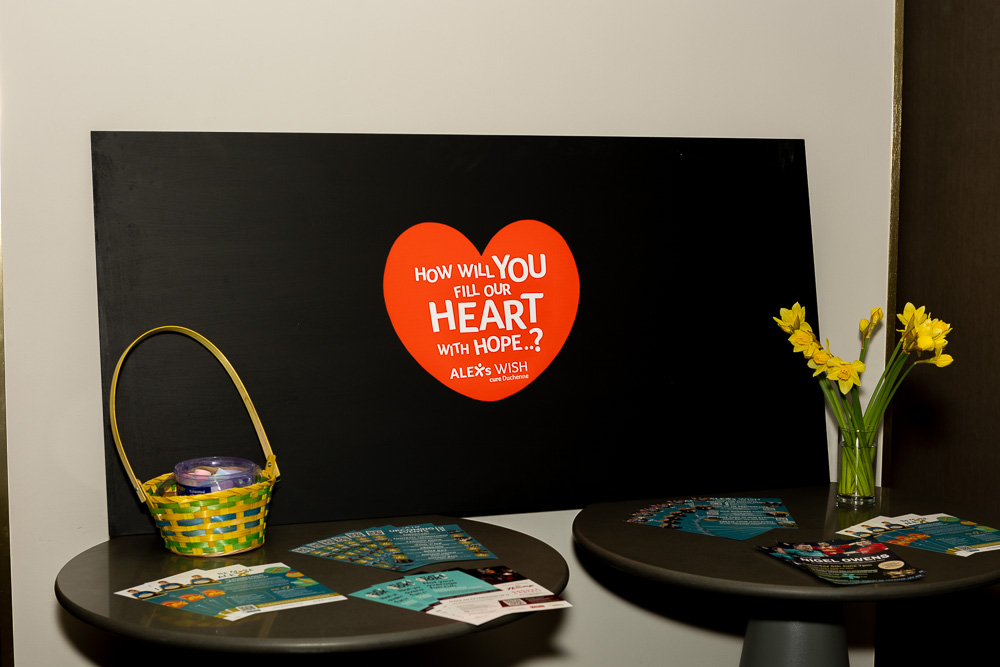
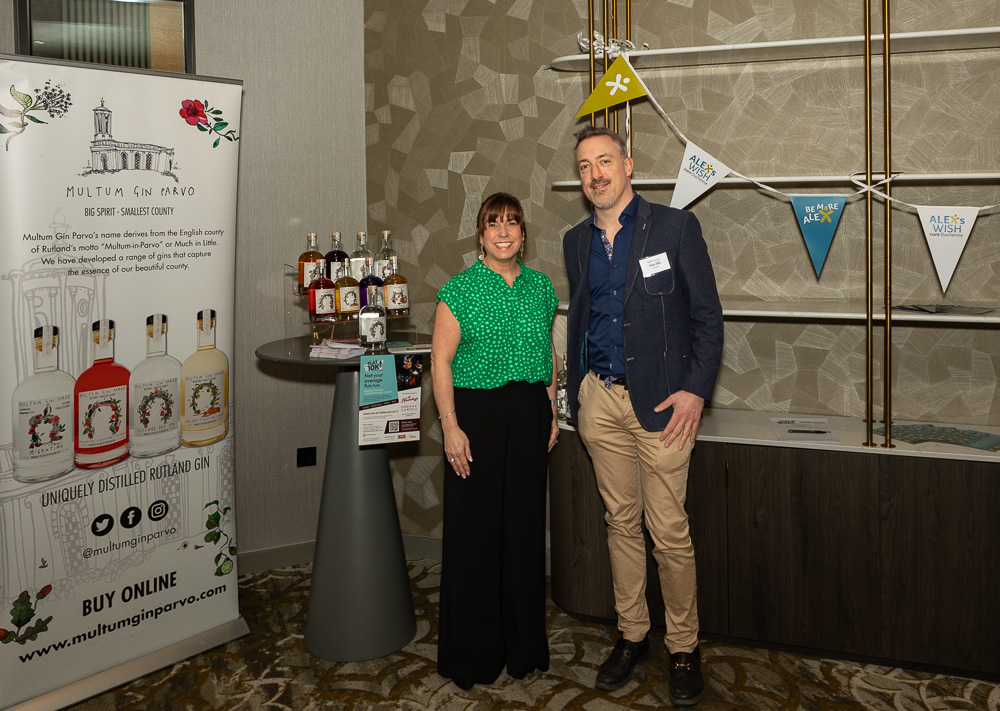
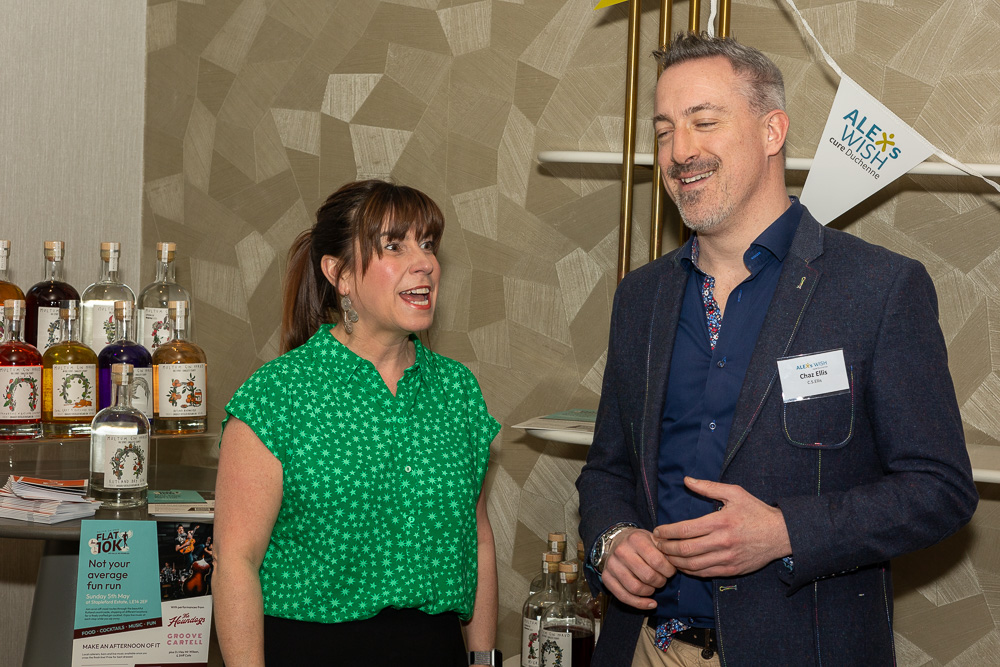


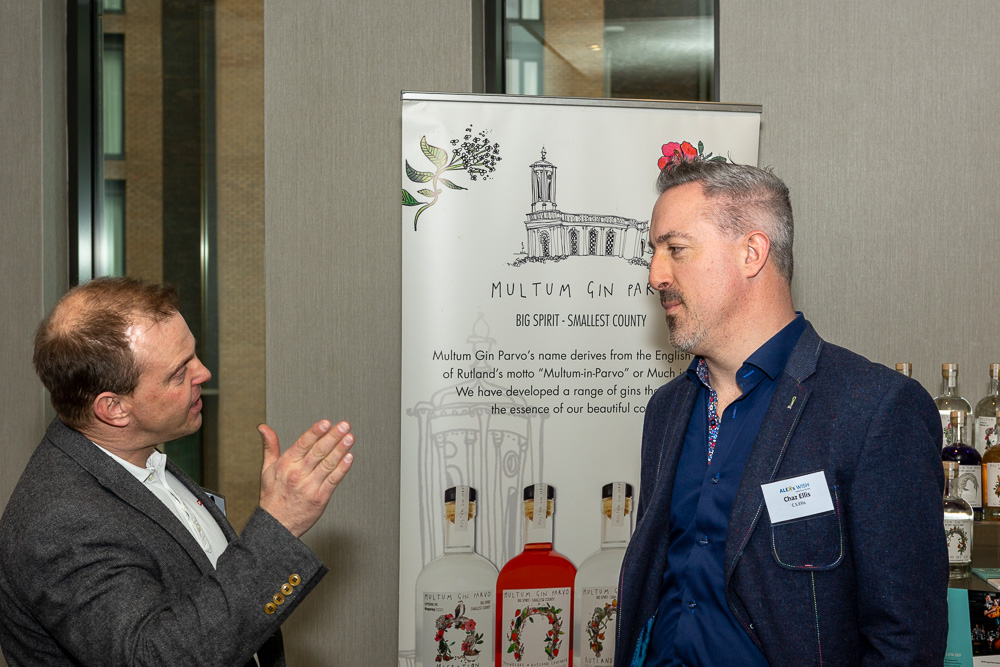
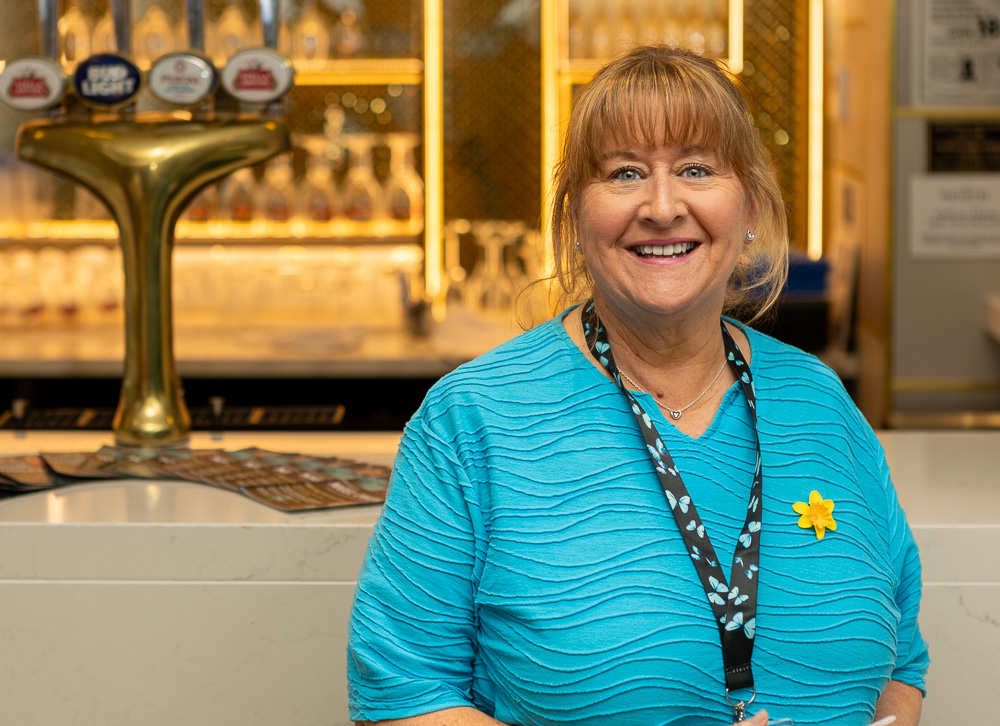
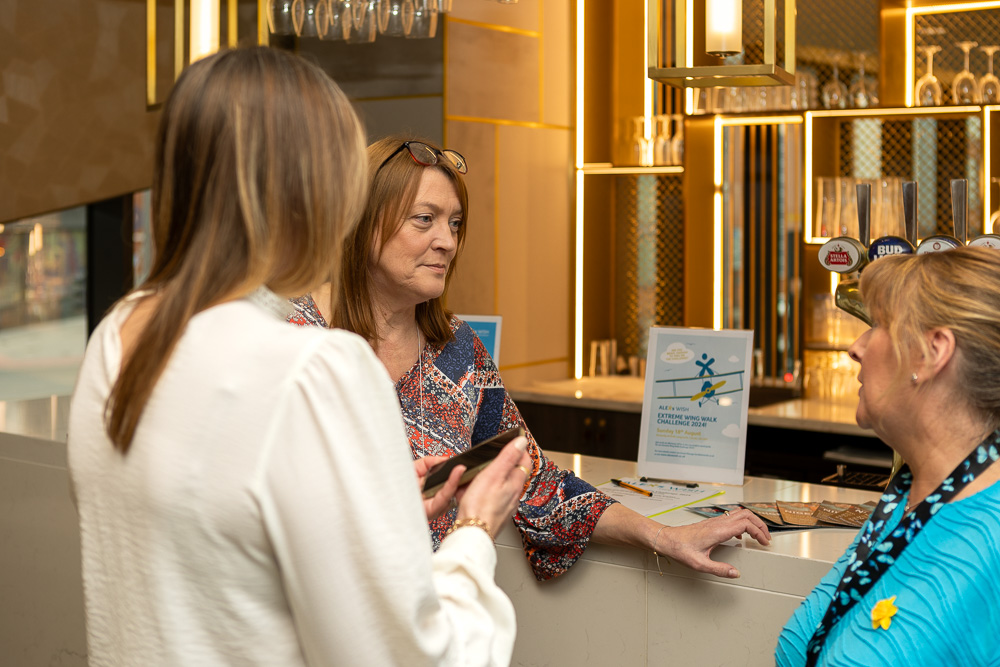
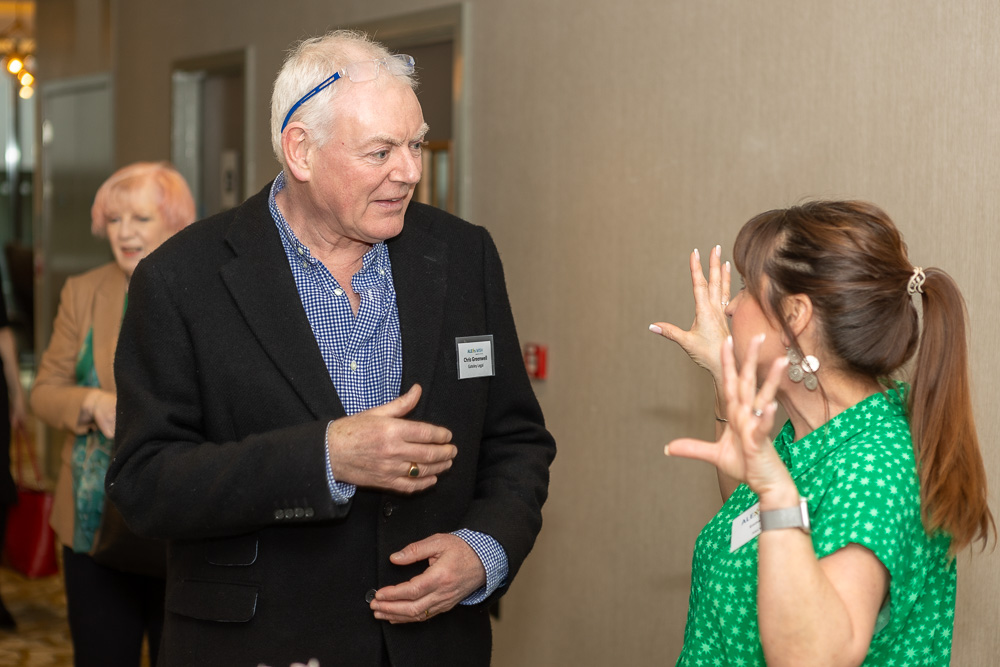
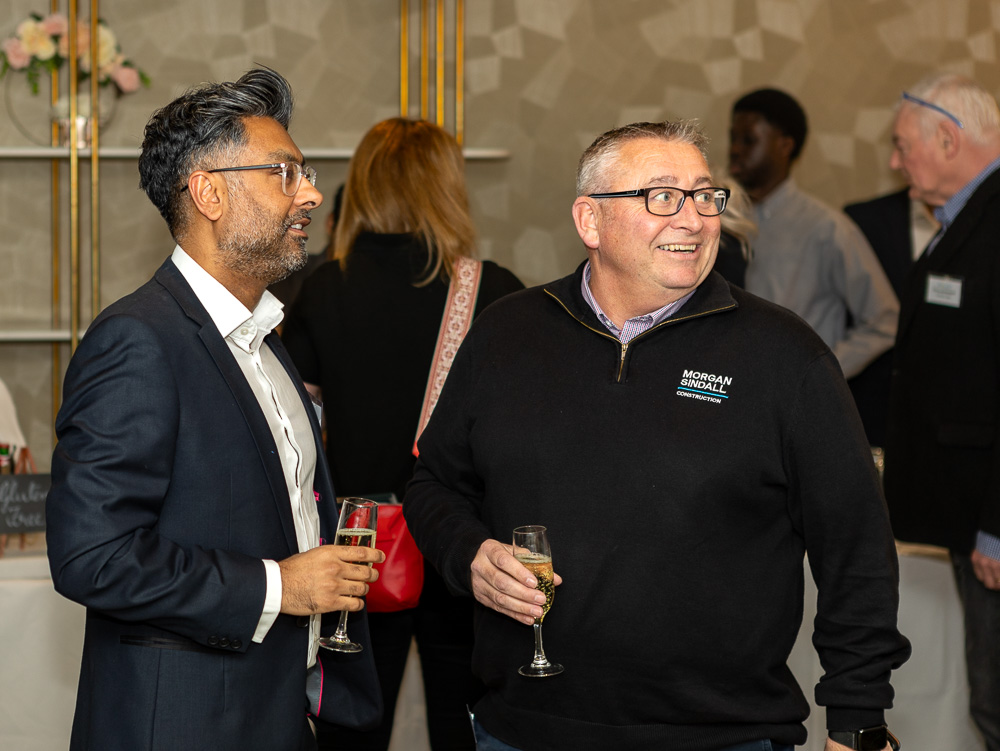
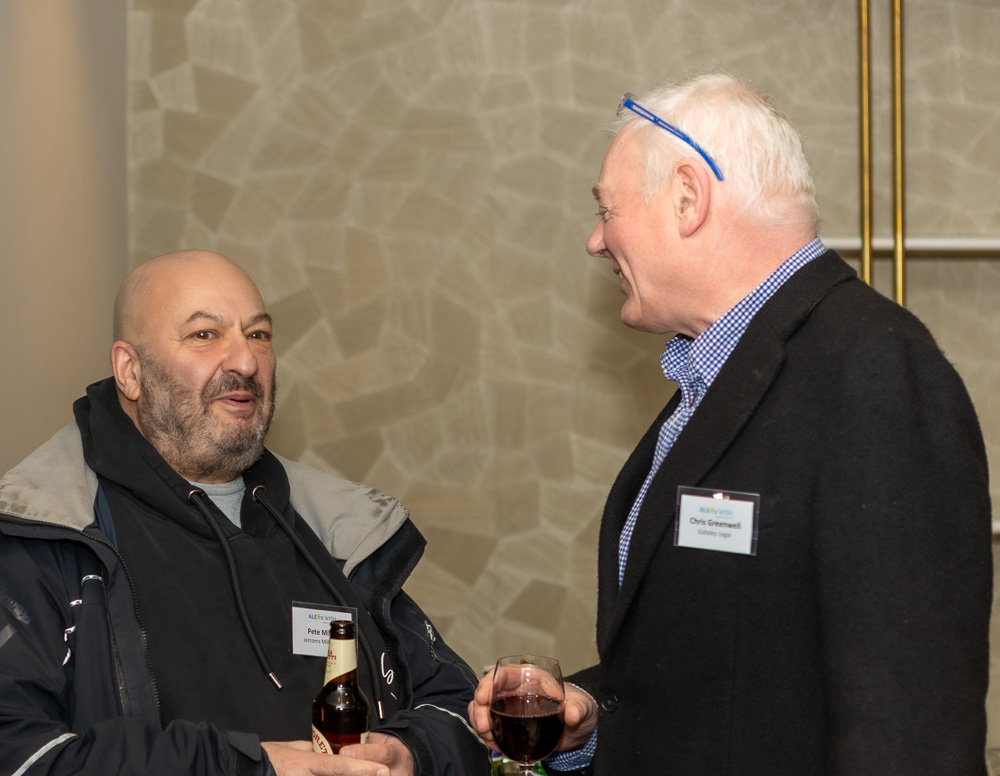
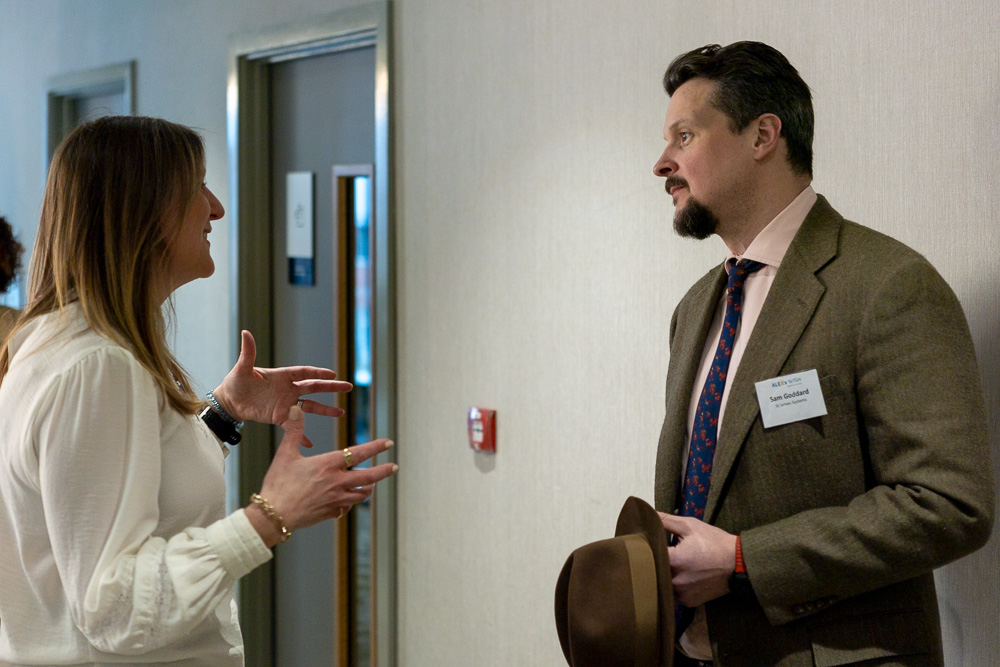
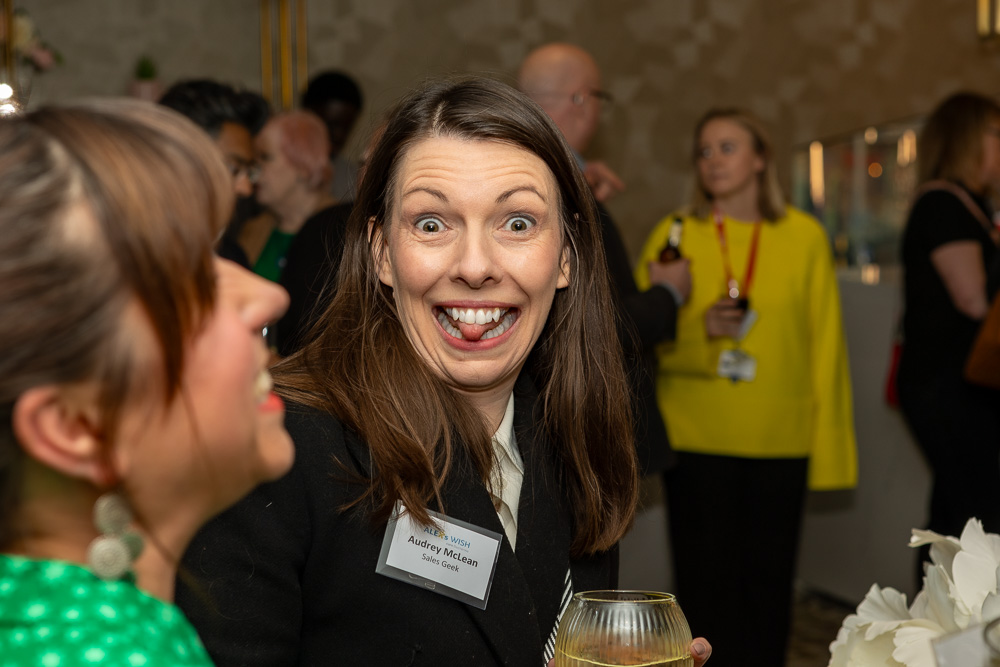
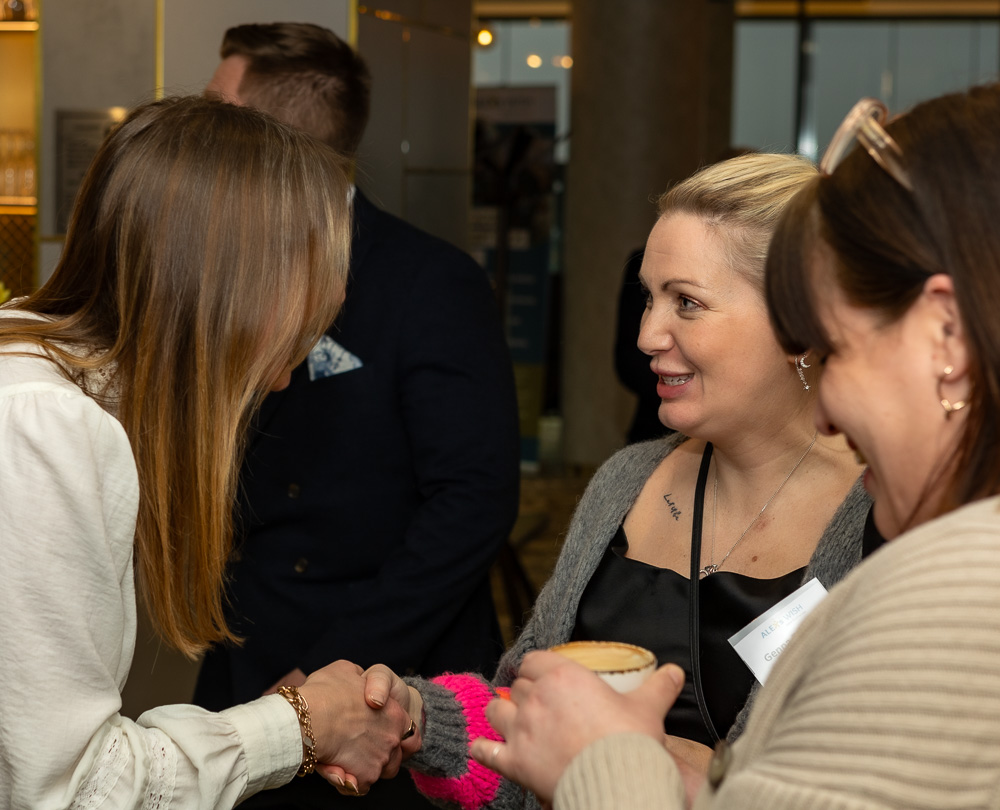


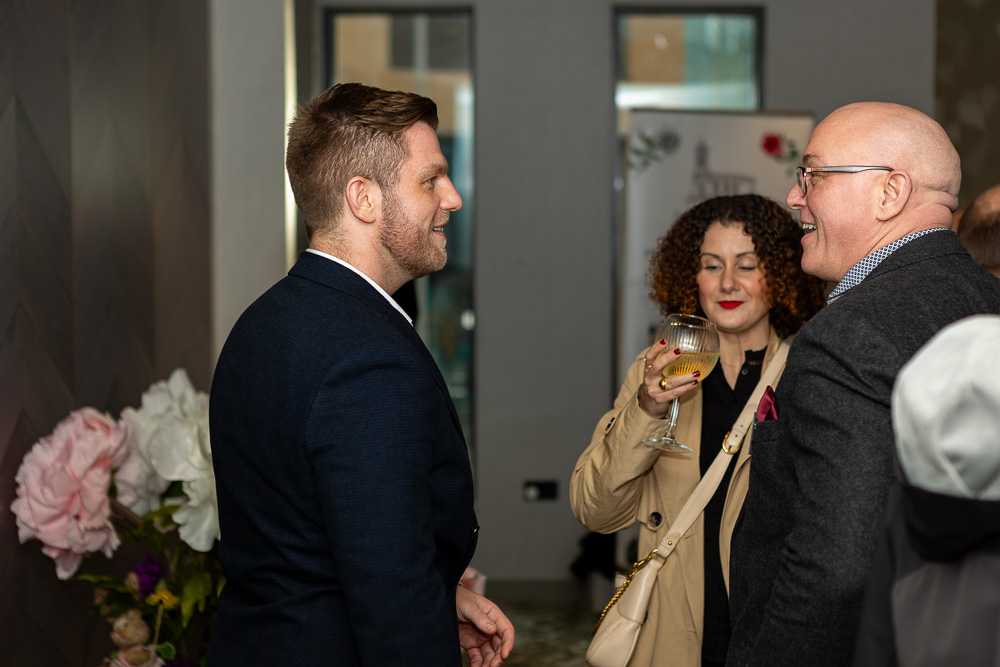
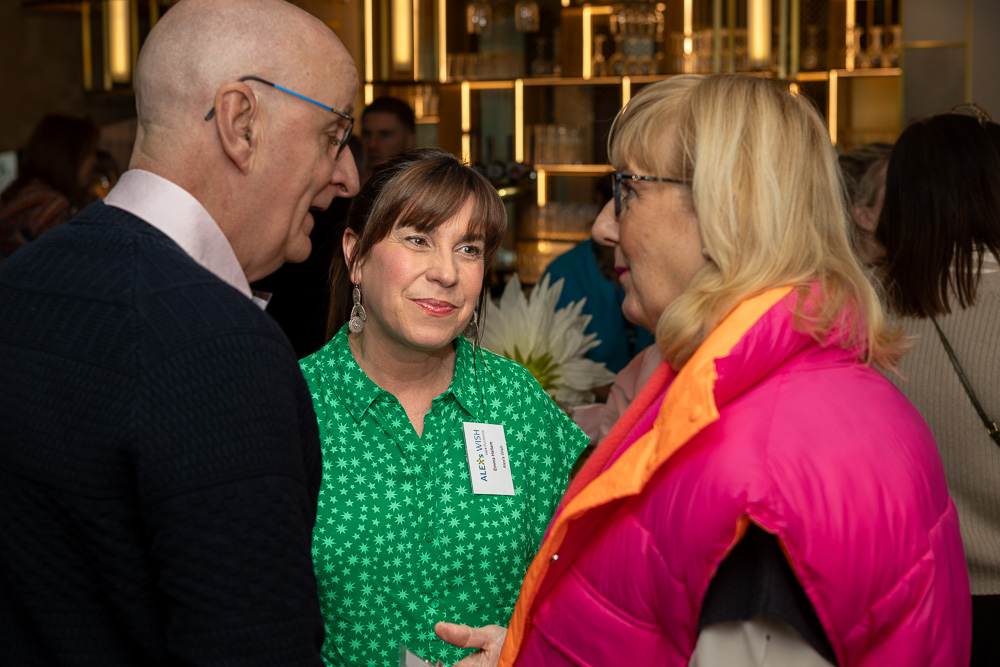
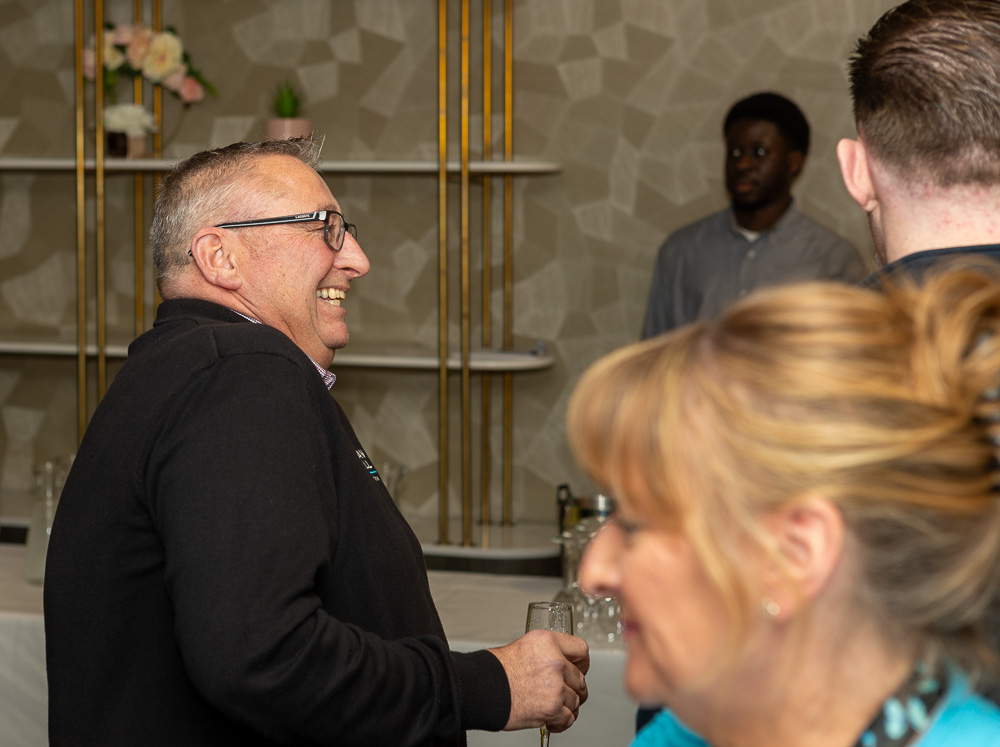


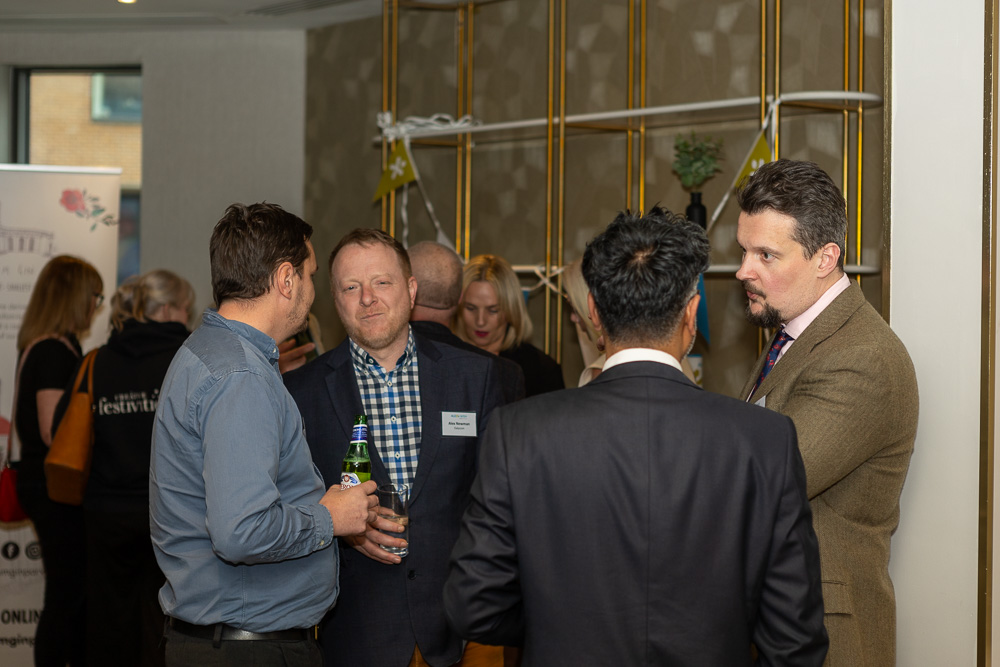
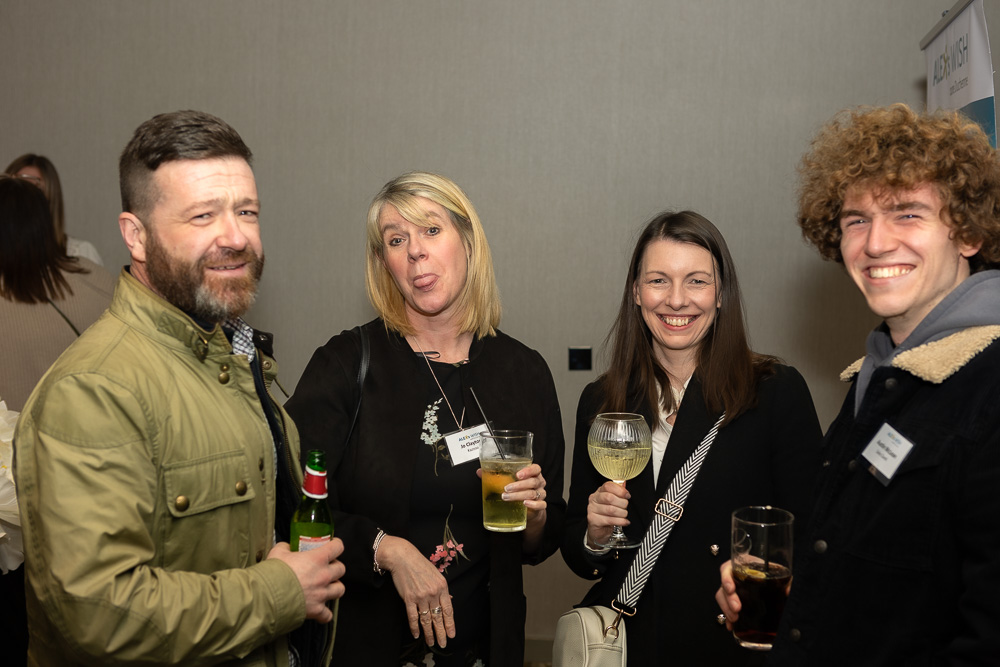
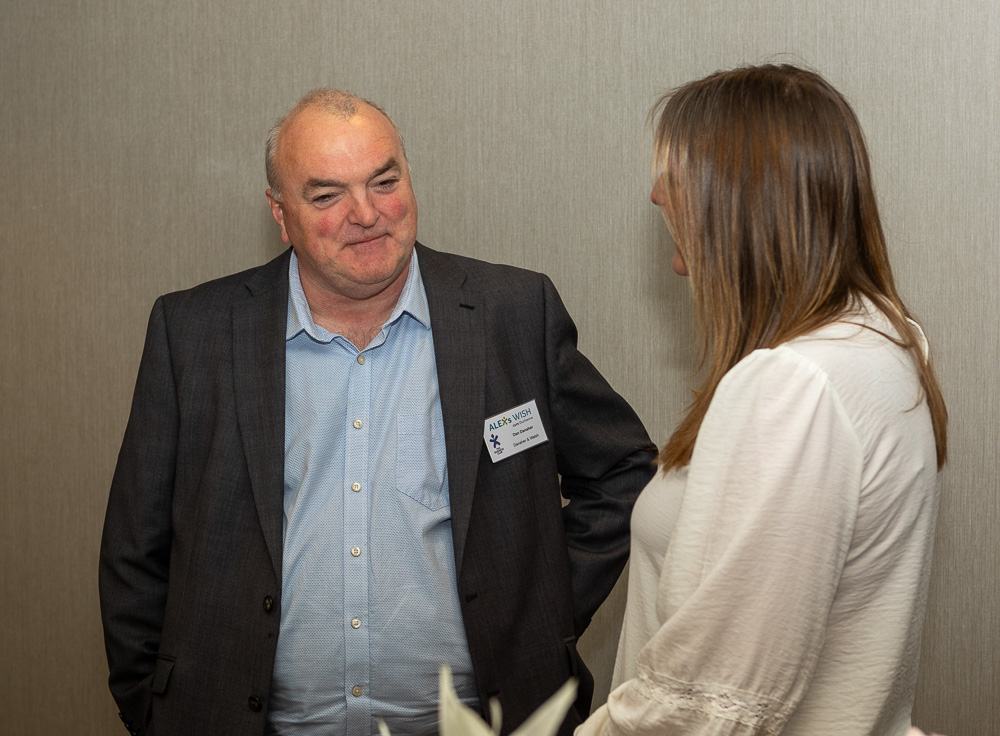
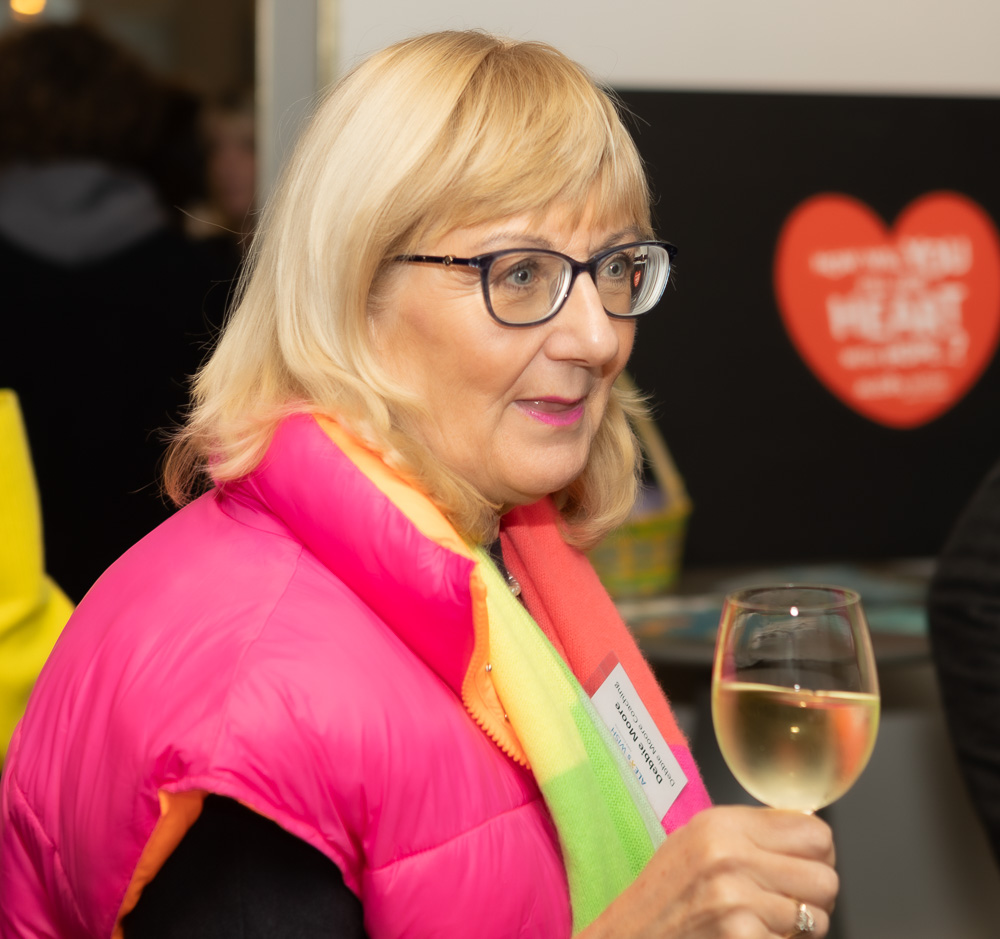
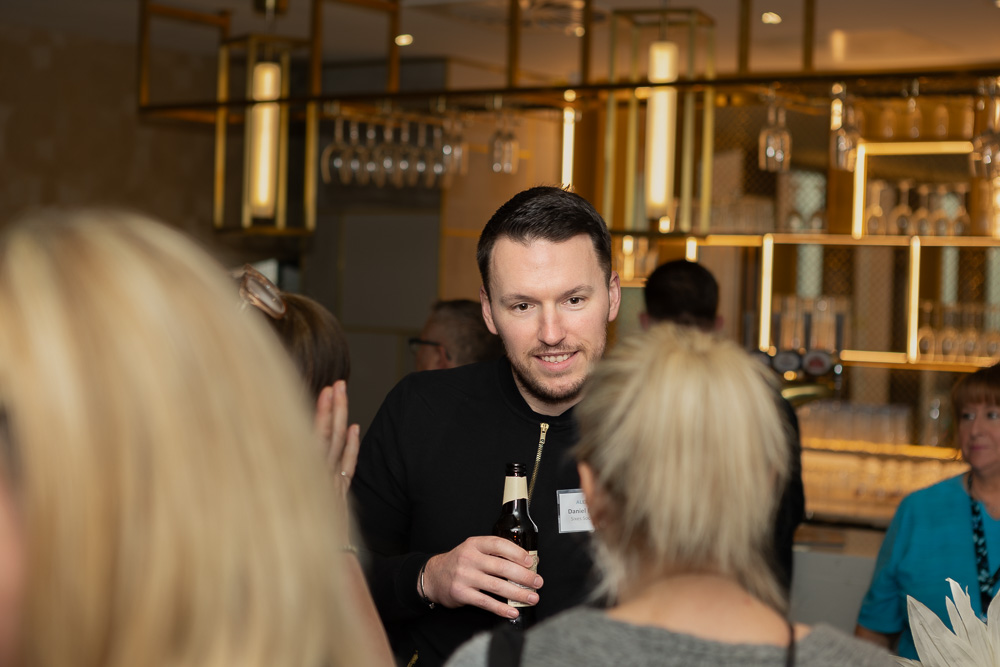
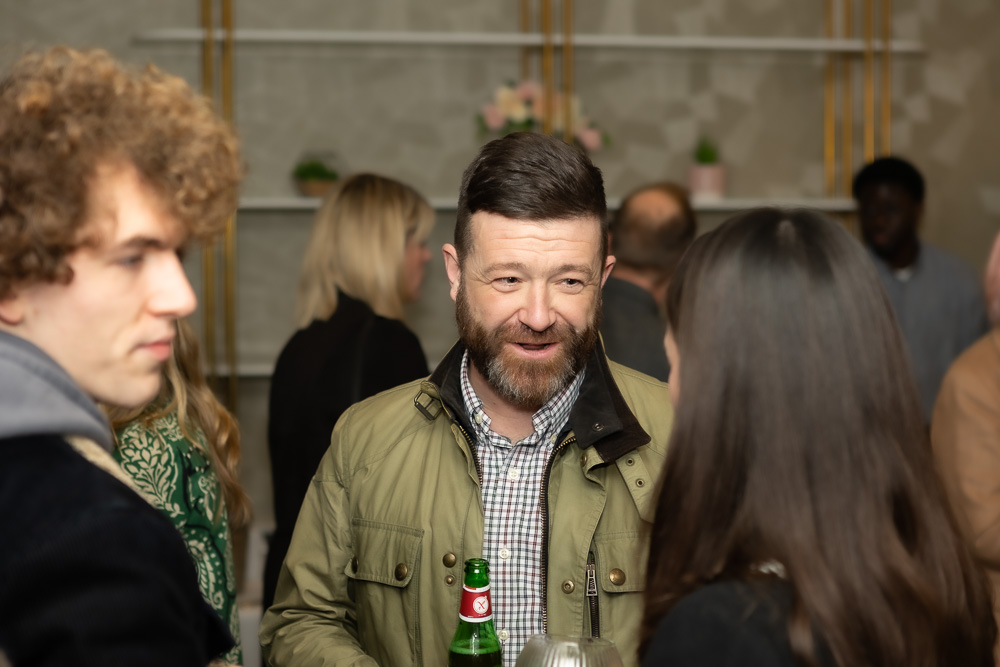
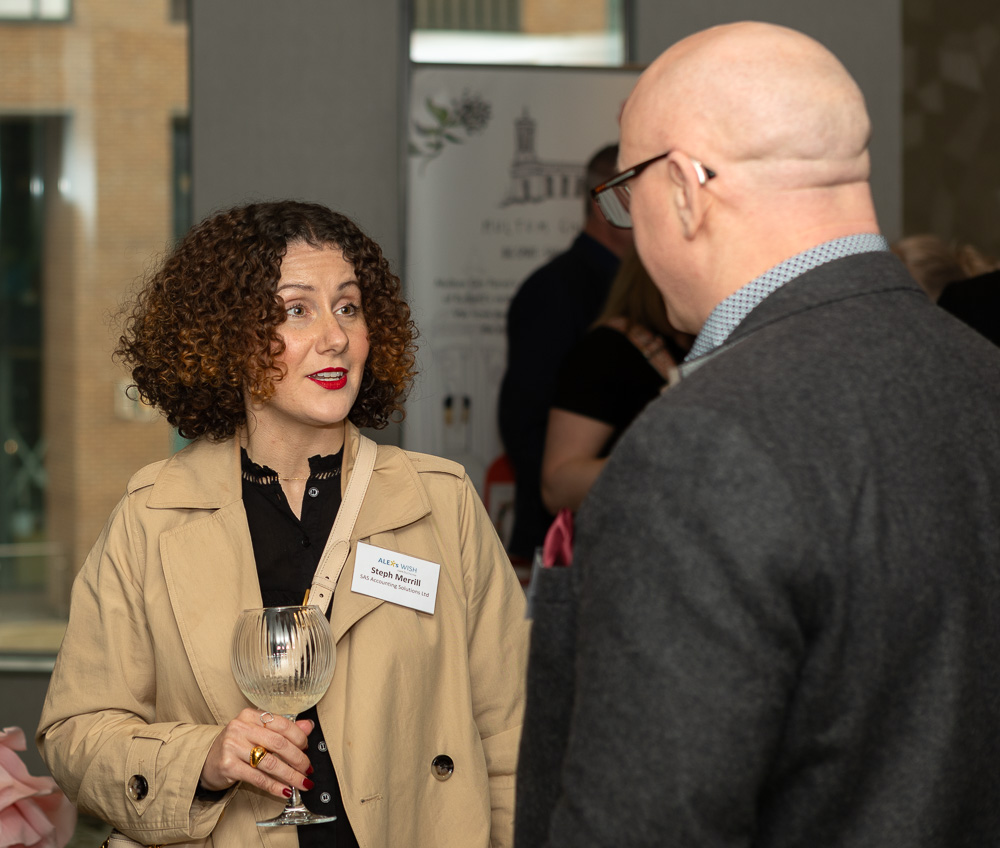
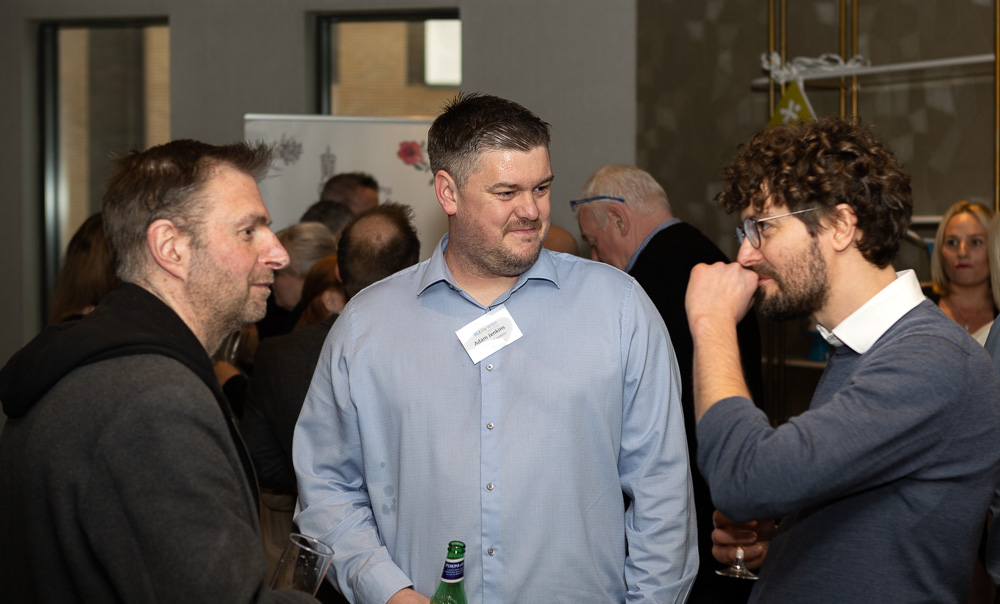
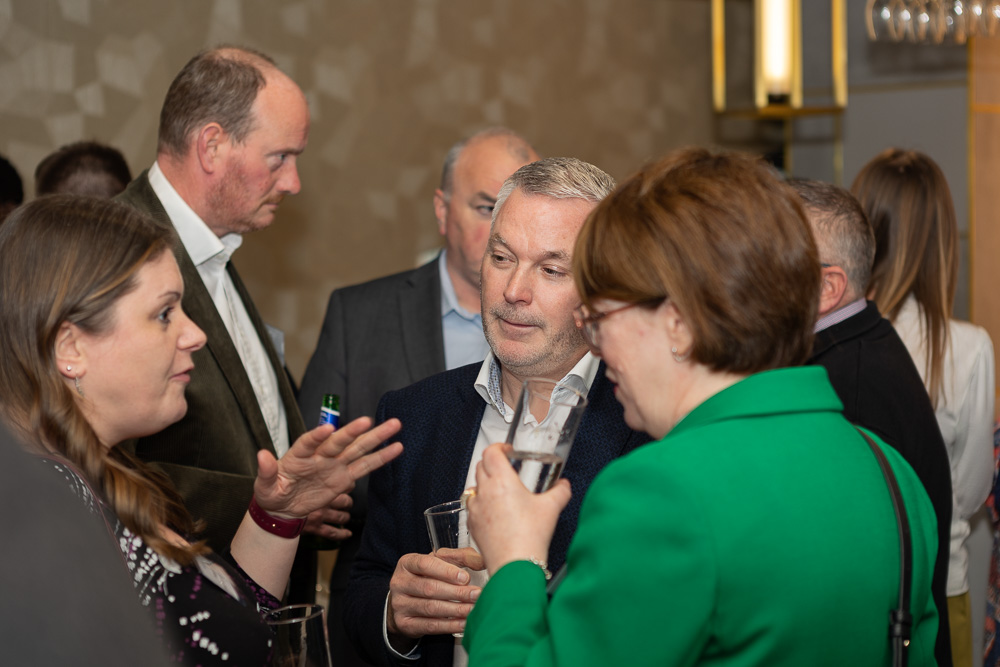
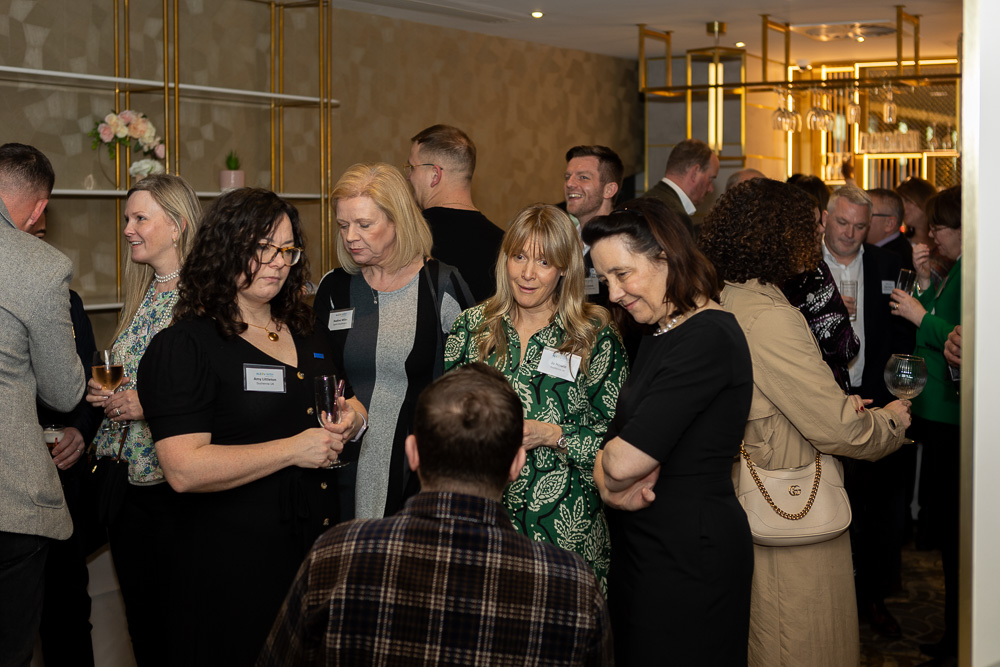

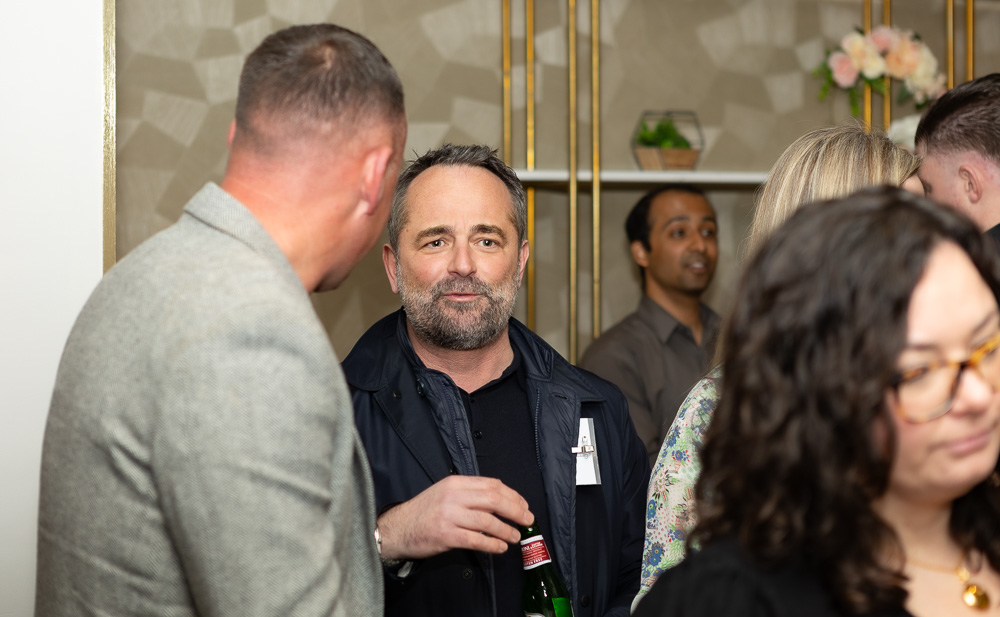
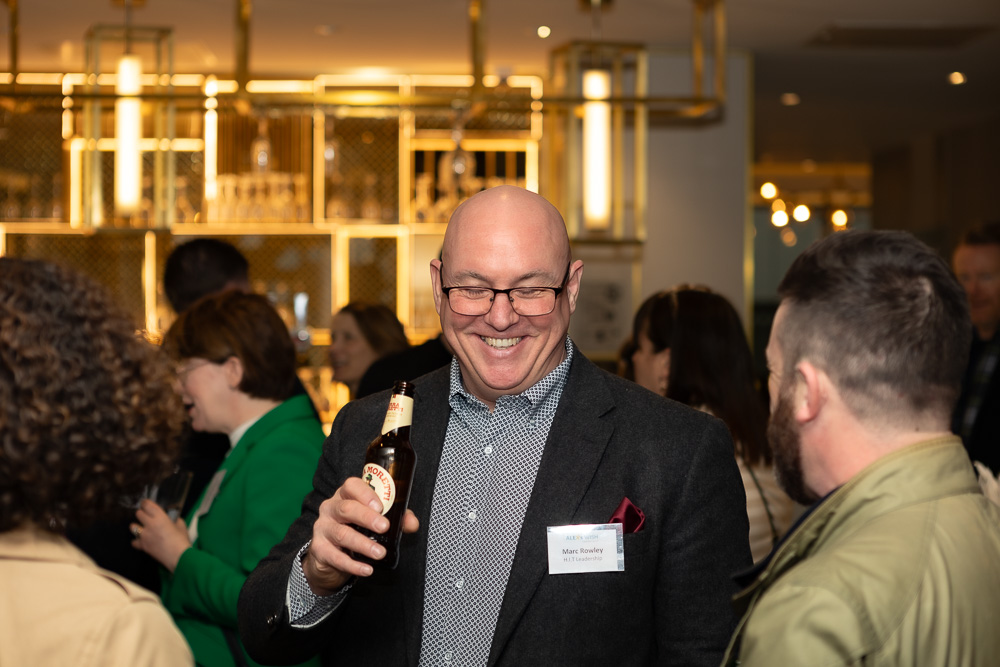

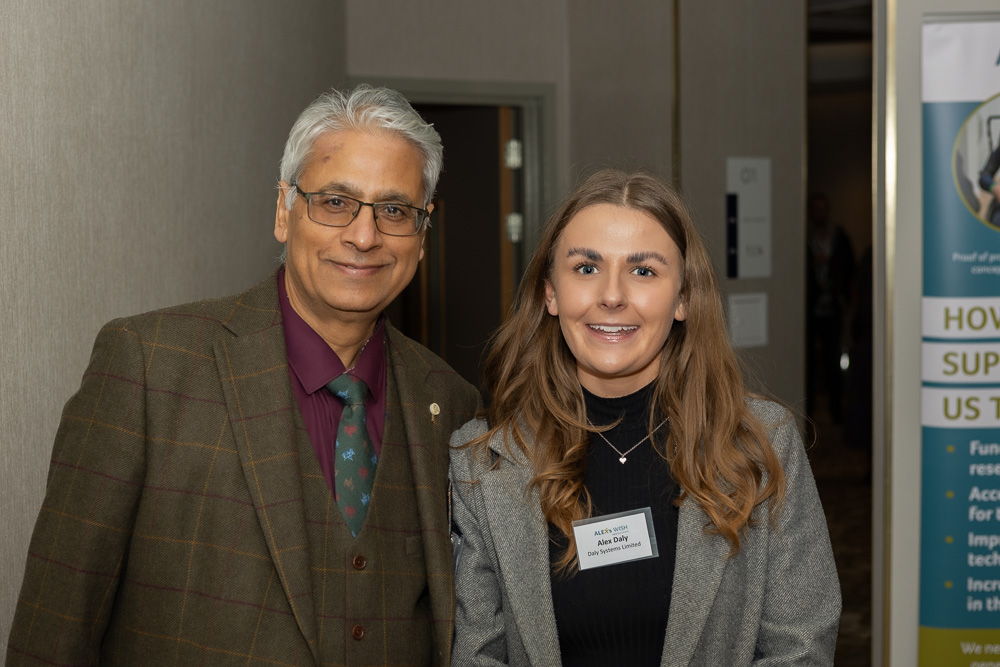
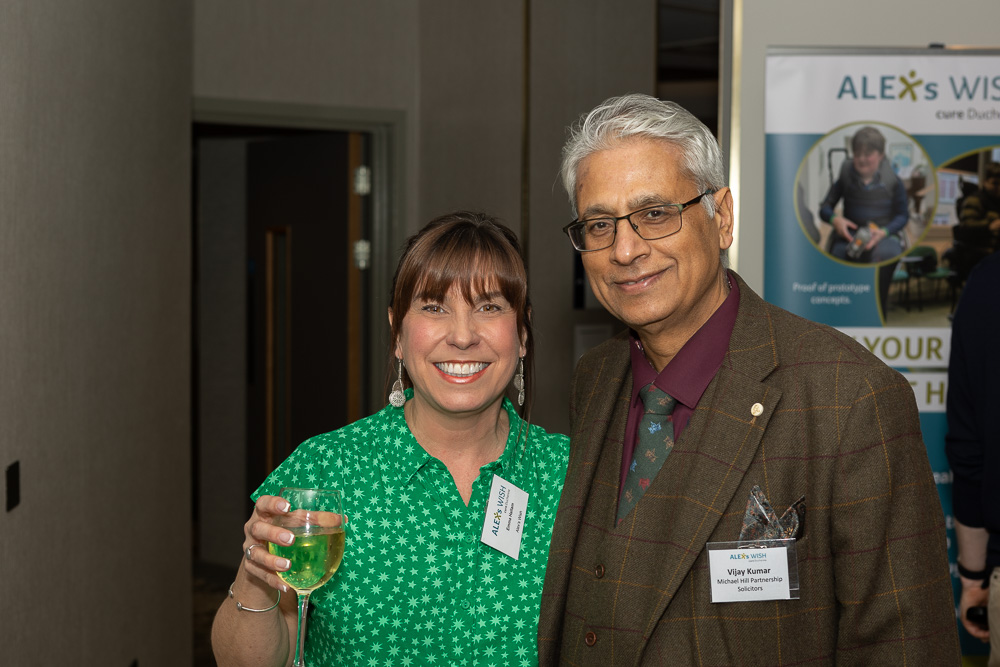
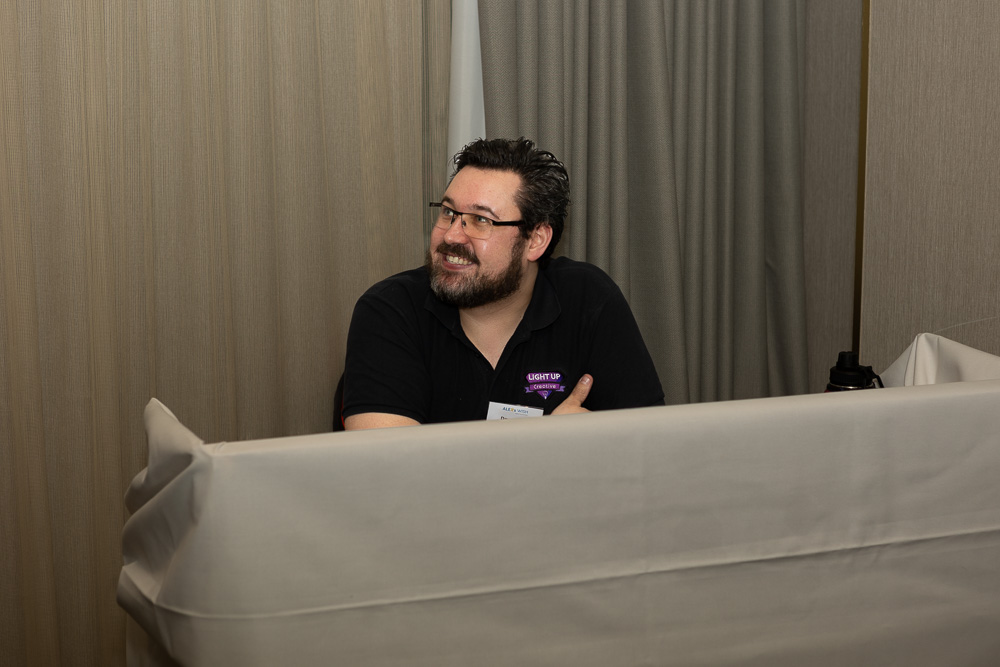
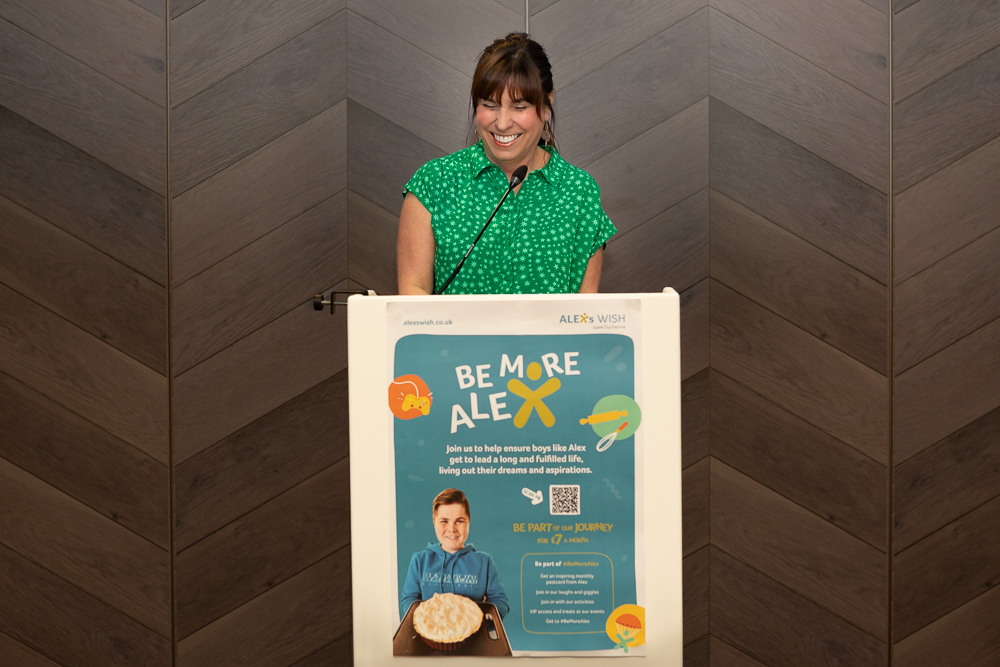
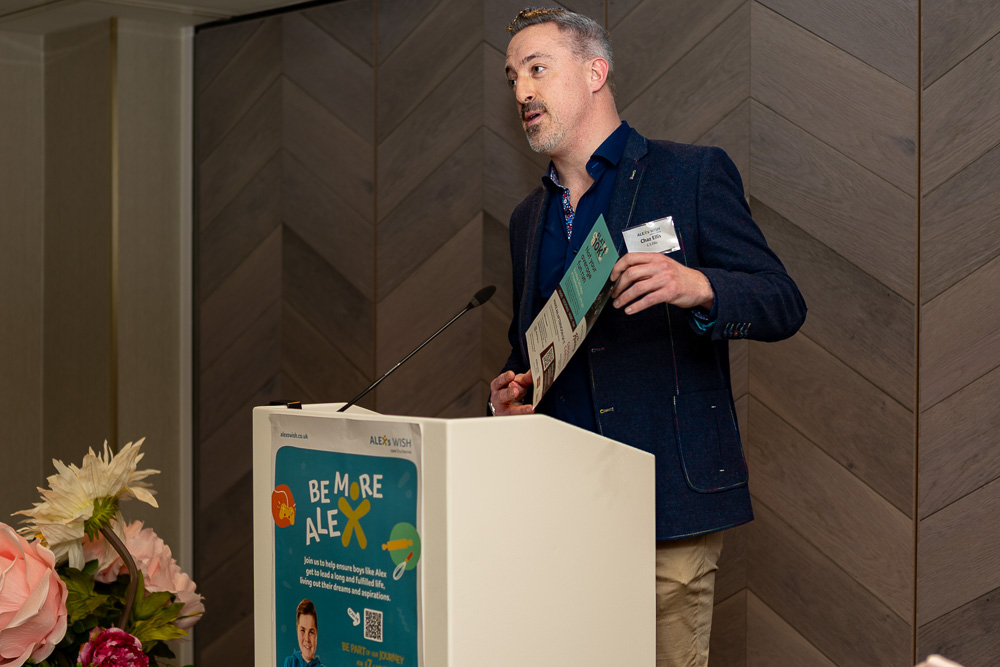
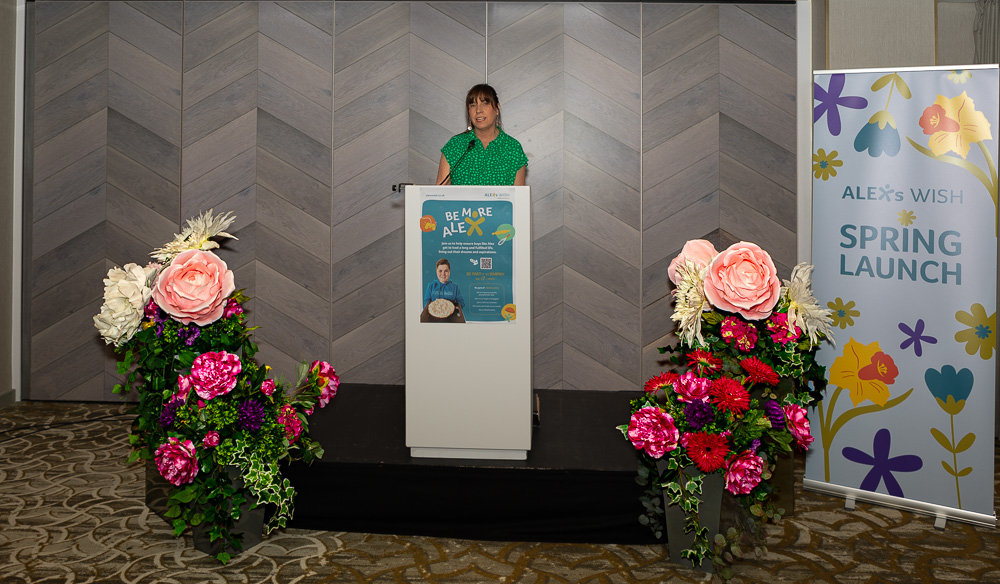
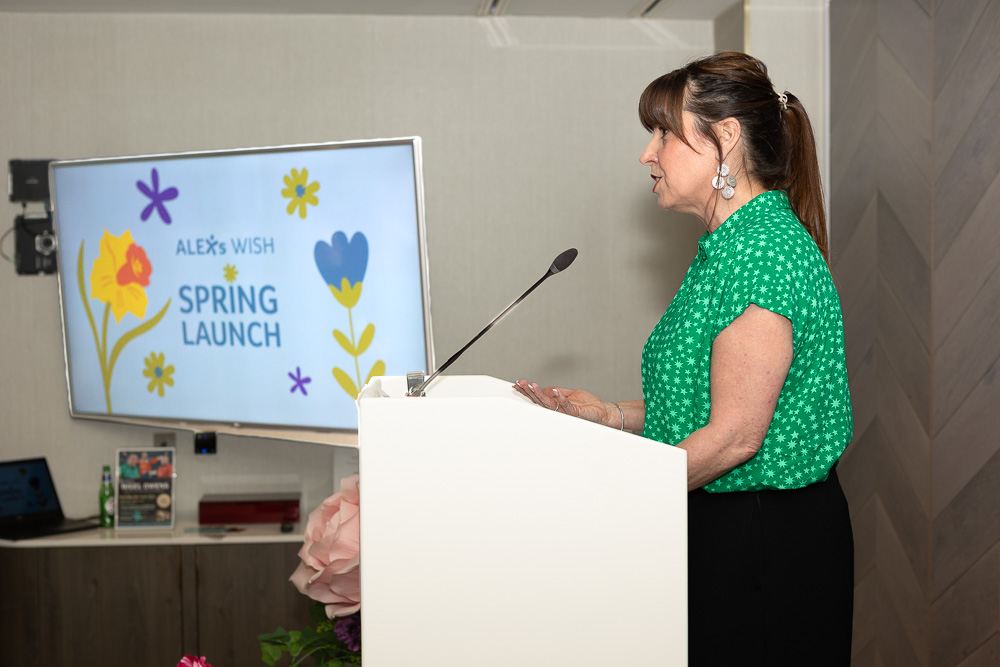
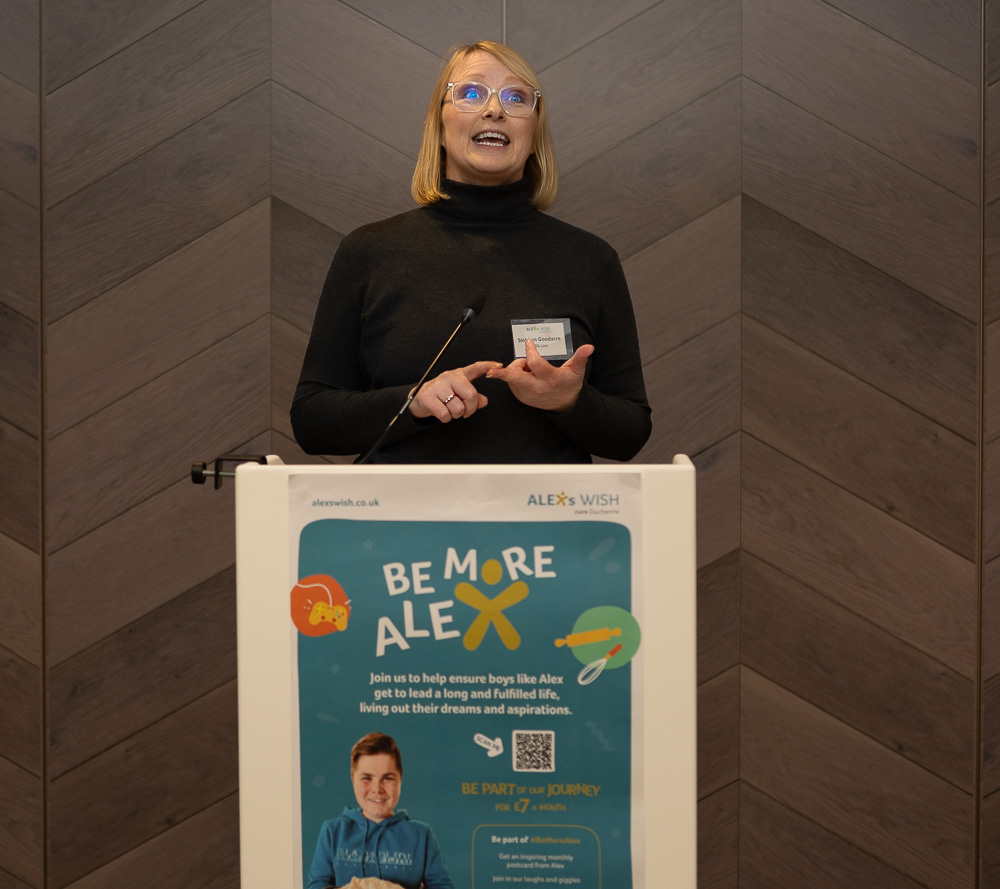

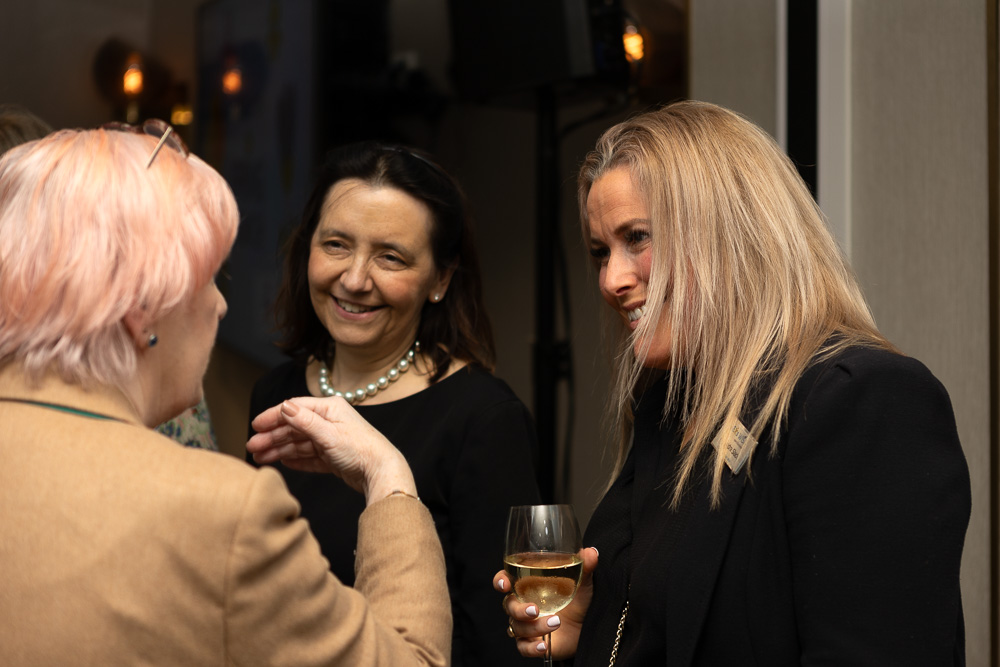
Posted in Uncategorized

